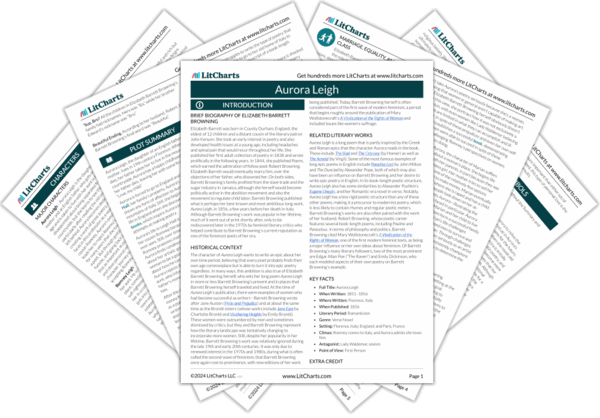Similar to Romney, Aurora shows good intentions in this passage, but as she herself once said earlier, good intentions for writers don’t always lead to good books. In this case, Aurora tries to do something charitable, but she still denies her own feelings for Romney, making her gracious manner a little dishonest. Marian, who has already taught Aurora about how to let other people into her life, does so once again in this passage by declaring that it isn’t enough to marry someone just because you admire them—there has to be mutual love.
